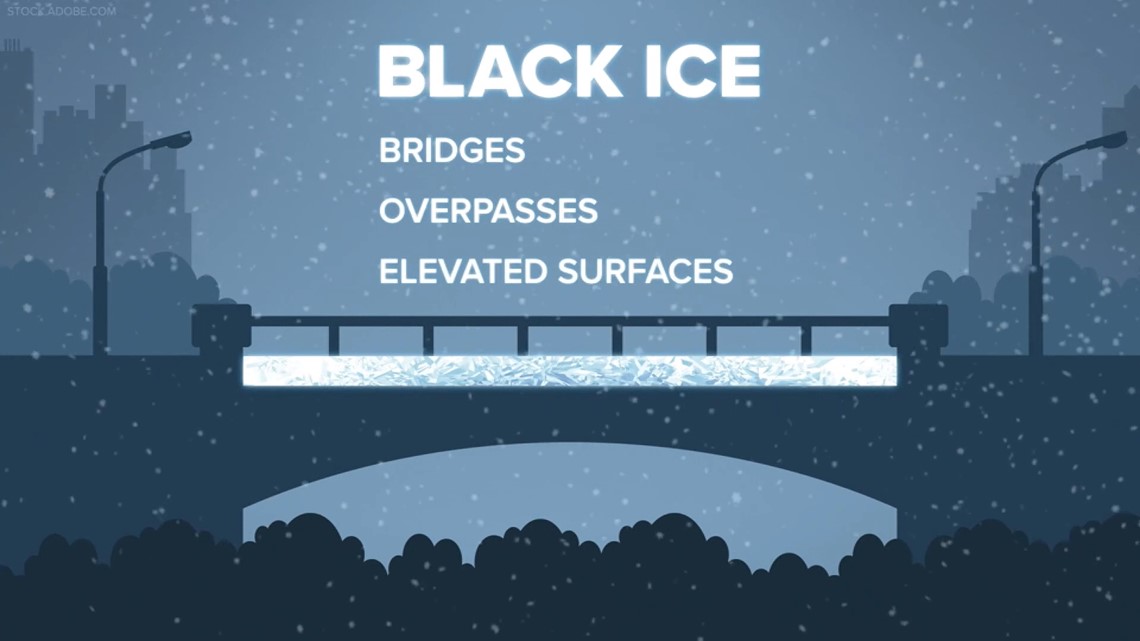CHARLOTTE, N.C. — Black ice can be extremely common in both North Carolina and South Carolina during the winter months.
This is especially true in the mountains where the risk can reoccur multiple times a year because of the colder temperatures.
Black ice is named because it is a thin, transparent sheet of ice that takes its color from the dark pavement or roadway below.
Any ice on the road may cause brakes and steering to not operate correctly or as efficiently. With the Charlotte region a melting pot of people from across the country, this can be especially concerning for those who have not previously experienced icy roadways.
Black ice forms quickest and easiest on bridges, overpasses, and other elevated surfaces because cold air is allowed to wrap around the top and bottom of the elevated surface simultaneously. This allows chilling to happen faster. Whereas a typical highway has the added benefit of warmth provided through insulation from the the ground below.
Beyond bridges and overpasses, this same science also applies to decks and balconies that see frost during a chilly winter morning.


Black ice is also extremely slippery. This increases the threat of cars hydroplaning and people falling in general. This can lead to concussions, bruising, contusions and other serious injuries. If a person is unaware of the black ice risk in the weather forecast, they may not know to take extra precautions.
Don't be tricked by the weather. Black ice doesn't only form after it rains and temperatures freeze over. Those slick, icy spots can form from morning dew - or even fog. If there's moisture on the ground before a big cold snap, black ice can develop.
RAISE YOUR WEATHER IQ: How does frost form
Moral of the story: always stay alert during the winter months and stay weather aware when there's a risk for black ice.
Contact Brittany Van Voorhees at bvanvoorhe@wcnc.com and follow her on Facebook, X and Instagram.
WCNC Charlotte’s Weather IQ YouTube channel gives detailed explainers from the WCNC Charlotte weather meteorologists to help you learn and understand weather, climate and science. Watch previous stories where you can raise your Weather IQ in the YouTube playlist below and subscribe to get updated when new videos are uploaded.

